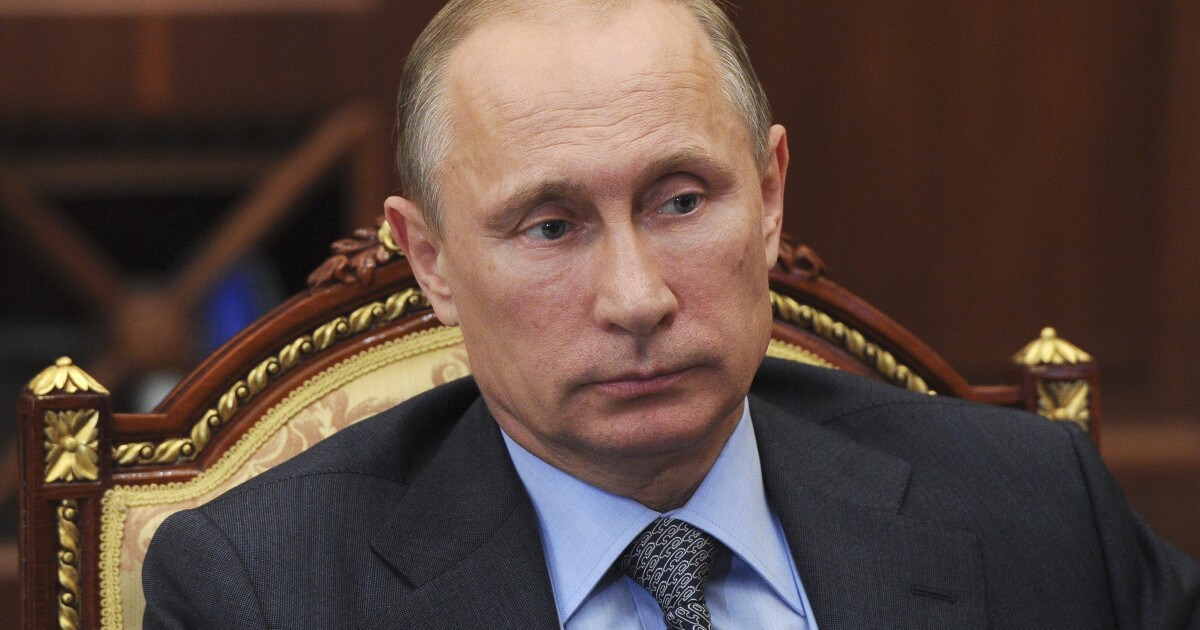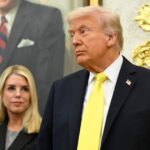

Russian President Vladimir Putin will not end his war in Ukraine until he’s “convinced” he can’t win, according to former U.S. Ambassador to Russia John Sullivan.
Sullivan, who served from February 2020 through this past September, was the highest-ranked U.S. official in Moscow before and during much of Putin’s invasion, which he sees dragging on for an extended period of time.
YEAR IN REVIEW: THE PENTAGON’S 2022 DEFINED BY HELPING UKRAINE IN WAR WITH RUSSIA
Putin “has to be convinced that he can’t win, that he can’t achieve the aims that he originally set out to achieve,” Sullivan told the Washington Examiner. “And he’s not convinced of that yet. He thinks that time is on his side, that the West will ultimately divide.”
While the U.S. and Western allies have provided tens of billions of dollars of military aid to Ukraine, in addition to imposing sanctions on Russians involved in the war, the Kremlin maintains relationships with countries including China, Iran, North Korea, and India. With those relationships, Putin still believes he can accomplish the initial goals of the invasion, toppling the Kyiv government and retaking the territory.
“He’s only going to back down if he thinks he can’t achieve what he set out to achieve, and he’s not convinced of that,” Sullivan said of the Russian leader.
Putin’s apparent belief that he can still win the war comes despite very limited gains throughout nearly a year since the initial invasion, though even U.S. and Western leaders originally expected Russian forces would be able to topple the Kyiv government with limited resistance. Instead, Ukrainian forces forced Russian soldiers to retreat from Kyiv in the war’s opening months, making Russia shift its focus to more regional goals.
“The West needs the support to the maximum extent possible … the Ukrainians in their resistance to the Russian invasion,” he added, though he agreed with the Biden administration‘s hesitance in providing Ukraine with certain weapons that Moscow could view as escalatory or bring the two into direct conflict.
The U.S. and Germany jointly announced last week that they will be sending infantry fighting vehicles to Ukraine. The administration announced a new military aid package worth nearly $4 billion on Friday that included 50 Bradley Fighting Vehicles, while Germany will provide its Marder infantry fighting vehicle.
“What the qualification is that President Biden has made clear, and I agree with him, that the United States does not want to be involved in a war directly with Russia,” the former ambassador continued. “So President Biden has walked a careful line in supporting Ukraine with a huge amount of weapons and ammunition but without escalating so far that it resulted in a direct conflict between the United States and Russia.”
Ukraine has used air defense systems, provided by the U.S. and other Western allies, to limit the Russian forces’ aerial assault, using Iranian-made drones, targeting energy infrastructure. Ukrainian and Western leaders have accused the Russians of weaponizing the harsh winter conditions by forcing millions to be without power, heat, or running water for times in an attempt to break the will of the people.
“There’s no desire by the Russian government for a general ceasefire or genuine negotiation,” he added, referencing a recent one-sided ceasefire the Russians undertook coinciding with the Orthodox Christian celebration of Christmas. “President Putin has had set in his mind very firm war aims despite the fact that they’ve been unwilling to call this a war. Now, whether it’s a Christmas truce or their desire to negotiate, President Putin hasn’t stepped back from the goals of this special military operation. And as a result, this war will continue.”
CLICK HERE TO READ MORE FROM THE WASHINGTON EXAMINER
Biden and other U.S. and Ukrainian officials responded skeptically toward the supposed Christmas ceasefire, which has ended.
By the end of Sullivan’s time in Russia, he had a “very hostile relationship” with his Russian counterparts, but he said, “I made it clear on behalf of the president in the United States and the United States government that the United States was standing with Ukraine.”







